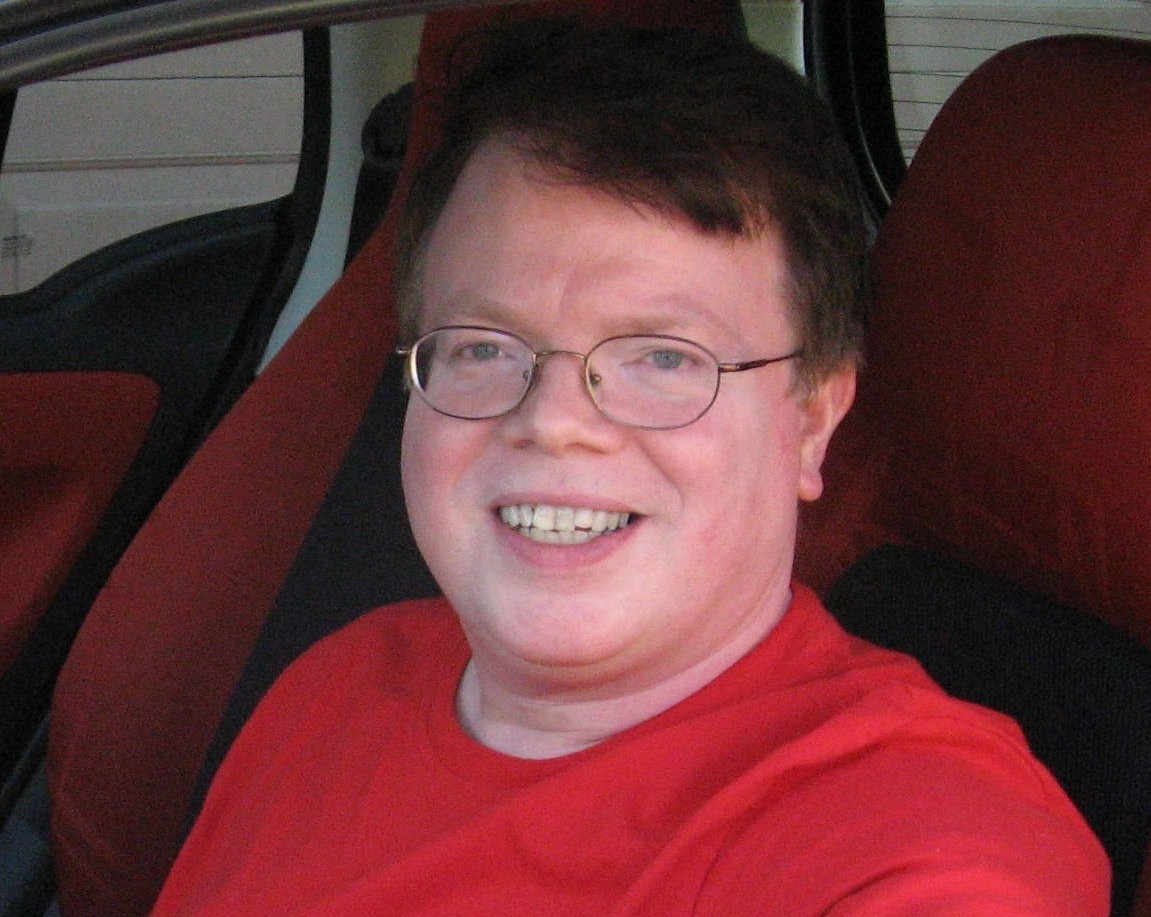Some have lasted longer than others, his most gratifying being his five-year stint on Spin City -- the final two as executive producer, when Charlie Sheen joined the cast. But as he told Scriptwriters Network at its June meeting, it has been a career marked by dealing with changes thrust at him on the job, and making some of his own life changes when the time was right.
His first pivotal career shift came when, after spending just a year out of college working for the Hartford Insurance Group in the mid 1980s, he decided the corporate life wasn't for him. He instead answered the call of standup comedy, first trying out his material at Connecticut open-mike nights and eventually moving to New York City.
As with many budding stand-ups, his first forays into comedy were less than welcoming. His act played in the kinds of places where a bar manager could spark a near riot by turning off the TV. "They wanted to watch the game, and they got me," Hertz recalled with a grimace.
Nevertheless, he appeared at comedy clubs at night while working as a bartender to support his new career quest. Over the course of five or six years on the standup circuit, however, he found that his major strength was not in performing but in writing. And that writing talent was noticed by his fellow comics.
Comedian Richard Jeni was so impressed that he hired Hertz to write some material for him. After that, Jon Stewart, another colleague on the club circuit, tapped Hertz to write for his MTV talk show that later became syndicated.
The Stewart show was canceled in the early '90s, leading to yet another big change for Hertz. He was offered a job writing for a new TV talk show hosted by radio personality Stephanie Miller, and Hertz was bound for California.
While the talk show was short-lived, the move to L.A. sent his career to new heights. Hertz heard from friend Eddie Feldman, head writer for Dennis Miller Live, and before long he was on the writing staff of that acclaimed HBO show and an eventual Emmy award winner himself.
Between seasons on the Dennis Miller show, Hertz had the opportunity to write for HBO's The Larry Sanders Show, ending his stint there as a story editor. From that moment on, the irreverent Hertz was officially on track to become a comedy show authority figure. He subsequently started at Spin City as executive story editor.
The transition from standup comic to half-hour writer to sitcom producer was one fraught with major adjustments. Fortunately, his experience working tough rooms at comedy clubs would serve him well in his role as executive producer, as he dealt with the non-stop script revisions, meetings with network executives, and internal squabbles that came with the territory. (He also weathered other big challenges that most producers don't face, including the departure of star Michael J. Fox and the arrival of Sheen, the transition to an ensemble rather than star-driven show, and the physical move of production from New York to L.A.)
His initial adjustment to the structural demands of sitcom writing was a tricky one, however. When he began writing for Spin City, Hertz found that he had to become not just a funny guy, but a story-teller as well. "In my first year on Spin City, the showrunner said to me, 'Tom, the problem is that your scripts are so funny, you're laughing and you don't realize there's not much of a story," Hertz recalled.
"I was always a funny guy and could write great jokes," Hertz added. "But I had to really learn the story structure and about not overwriting scenes, and how you dole out information beat by beat. It's all that stuff."
Asked by Network moderator James Jordan what he would do differently if he were starting in the business today, without the crucial bonds he formed in the stand-up world, Hertz said he would probably do more research into the craft of sitcom writing, and more analyzing of other shows to get a clear idea of what makes them click. "It's better to do the research and work, and make an effort to figure things out," he advised.
Besides research and constant writing, Hertz said aspiring writers should do what they can to get into the atmosphere that will propel them creatively and connection-wise. That could entail getting a job as a production assistant or writers assistant at a sitcom, or a staffer at a community theater. "It's good to be in the show-biz environment or around the job you eventually want to be on, even if it's (initially) in a position that's not what you want," he said.
Even after someone has made it in the business, the hard work never ends. As Spin City's six-year network run drew to a close recently, Hertz was hard at work helping to punch-up jokes and revise scripts for a number of pilots, including one for the show that he will co-executive produce in the fall, tentatively titled Less Than Perfect.
Hertz's years on the production front lines have given him a good idea of what constitutes a funny half-hour. Jokes and plots are important, but the best situations are those that bring out realistic emotions from the characters, which in turn generate the laughter.
Hertz is bullish on the long-term future of sitcoms despite the current economic doldrums facing television as a whole. And he said there will always be room for those who write well and can get their work into the hands of people who can make a difference. For writers, as with standup comedians, staying positive and persistent in the face of rejection is crucial.
Noting the indirect route his own career took, Hertz pointed out that all kinds of writing have the potential of landing someone in a TV writing job. He offered the example of magazine writer Peter Mehlman, who wrote many Seinfeld episodes after catching the attention of creator Larry David. And he noted that another writer earned a job on Six Feet Under after creator Alan Ball read a risqué magazine essay she had authored.
"Practice writing stuff where you're not writing it to try to please someone to get a job," Hertz advised. "You're just writing it to get your voice across -- writing that's just pure creativity."
And don't let jealousy and competitive envy get out of hand. "It's a marathon. You want to sell a spec or movie for a million dollars, but you're going to keep writing."
"If you do something every day, no matter what it is, you're going to get pretty good at it," he added.
Scriptwriters Network member Lou Hirsh is a writer for a Los Angeles Internet company.























